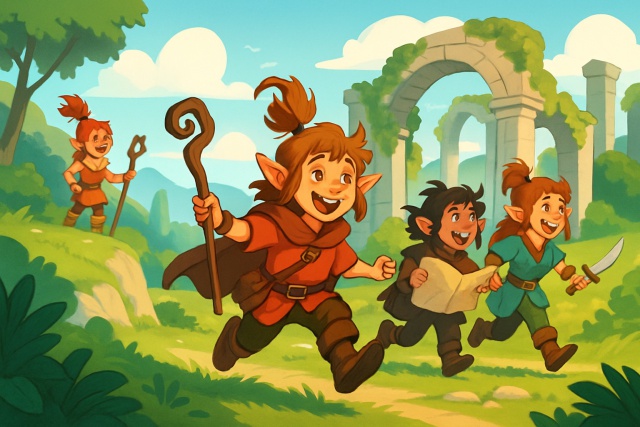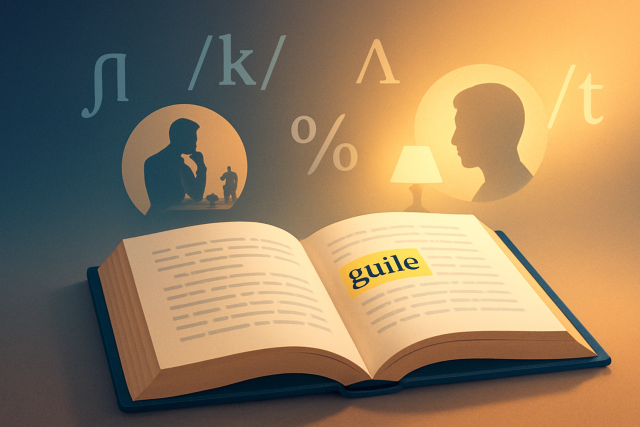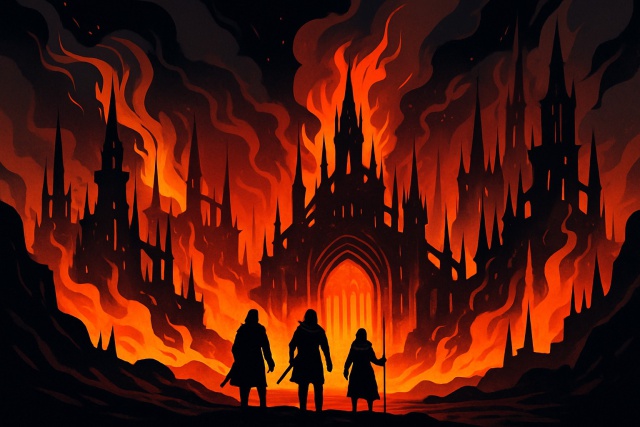
Aoskar the Dead God - Explained Simply

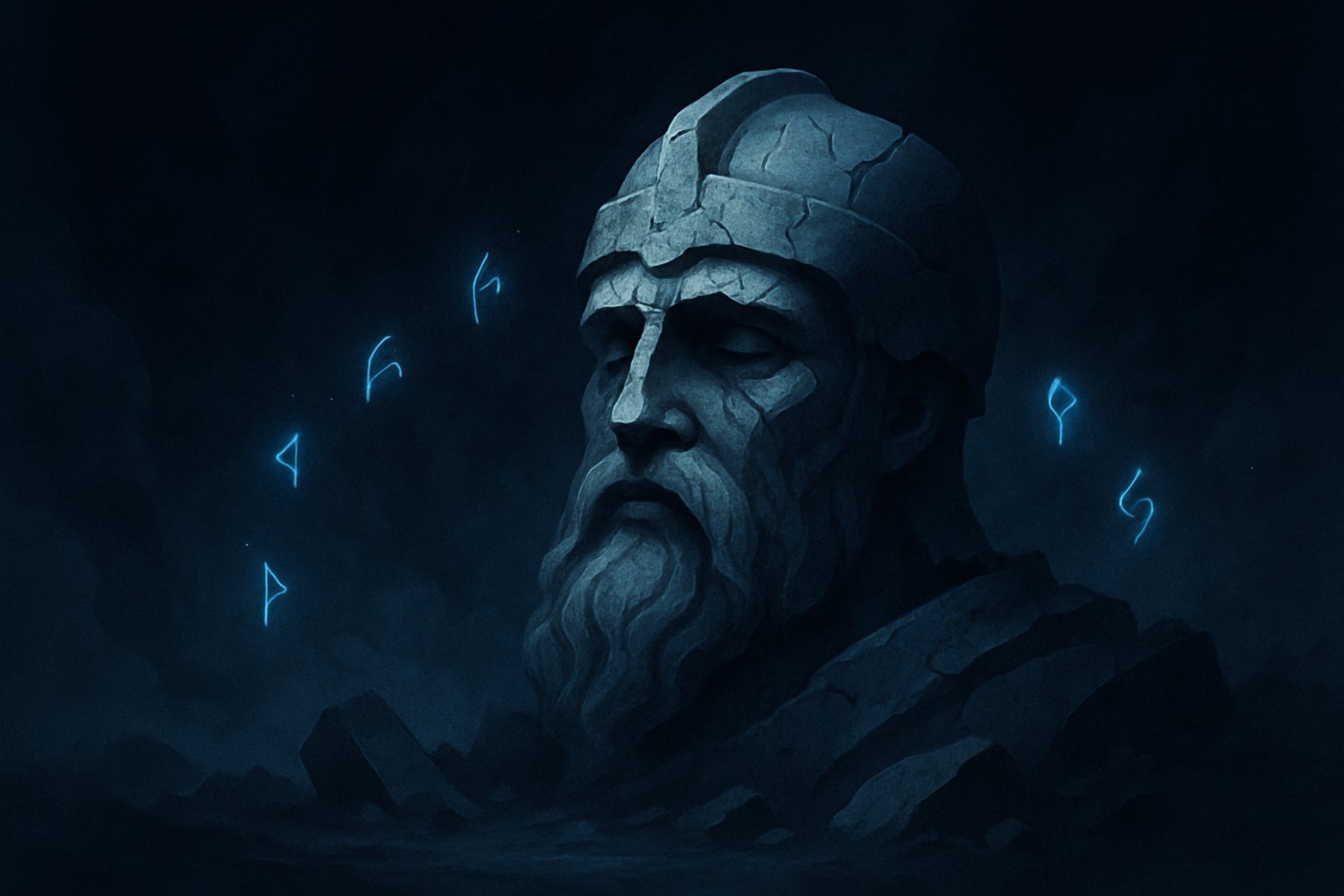
Aoskar stands out in literature as the Dead God. His name likely harks back to ancient mythological roots and is crafted to stir up a sense of mystery and a hint of lost divinity. Aoskar embodies themes of death, loss and the lingering echo of what once held a divine spark
Who is Aoskar? Getting to Know the Dead God a Little Better
Aoskar is known as the Dead God, a divine figure who has lost his power or life yet still manages to leave a lasting mark. In literature, Aoskar symbolizes the lingering echoes of a forgotten deity whose death ripples through tales of decay, fate and inevitable change.
- Aoskar is often portrayed as a once-mighty god who has fallen silent or vanished and stands as a poignant symbol of lost divine authority. There is a certain bittersweetness to his story.
- He embodies those turning points when old powers start to fade into the background and new forces step into the spotlight. Change is the name of the game here.
- When Aoskar shows up you can almost feel the heavy themes of fate and inevitability wafting through the air as if destiny itself has taken center stage.
- You will typically find him lingering in spots marked by decay—ancient temples crumbling into dust or realms caught in that eerie limbo between life and death. These are places where the past is never quite gone.
Contextual Background on Getting to Grips with the Dead God Concept in Literature
The Dead God stands as a timeless figure in literature and mythology representing those gods who once commanded devotion but have since faded into obscurity or lost their grip on power in the world.
This trope really nails those age-old cycles of death and rebirth and the fading of ancient powers. It also shows the messy aftermath when humanity or the gods hit a rough patch. Aoskar steps right into this tradition as a symbol of lost divine energy. It highlights concepts like the unavoidable passage of time, forgotten legacies that slip through the cracks and the steady, unstoppable flow of time.
Aoskar’s Role and Symbolism and What Aoskar Truly Represents
Aoskar stands for more than just death. He captures those tangled feelings around decay—the kind that remind you change is inevitable—and the bittersweet tug-of-war between faded glory and quiet obscurity.
- Death and decay are inevitable guests at life’s endless party and natural parts of our journey
- The slow fading or removal of divine power and how that shift reshapes entire cultures can’t be overlooked
- Life and death circle like an endless dance that highlights themes of rebirth and fresh beginnings
- Fate and destiny, those ever-present puppeteers, pull strings in both mortal realms and divine spheres
- A lingering sense of mystery and fear cling to the unknown especially as ages draw to a close
Authors often lean on Aoskar’s symbolism to set a particular mood and nudge readers into reflecting on mortality and change. For example, a story that places Aoskar’s tomb front and center—a spot where characters wrestle with the gnawing fear of being forgotten. Or picture a crumbling temple, standing as a quiet witness to the fall of once-mighty civilizations.
Frequent Misunderstandings About Aoskar That Often Trip People Up
Aoskar is often a bit of an enigma frequently misunderstood. Some individuals view him as a gentle deity while others take his death at face value and assume it means total extinction.
- Aoskar isn’t just some kind or benevolent god you’d expect but a symbol of divine absence and the ripples that come with it.
- His death isn’t really the end of the world. Think of it as a transformation or maybe just a long quiet nap within a cosmic cycle.
- Aoskar’s story weaves into many mythologies so it’s not a standalone tale. It’s deeply intertwined with various cultural traditions.
- He’s not lurking about as a malevolent force. Instead, he’s a reflective figure embodying natural cycles and the ebb and flow of life itself.
A Closer Look at the Impact of Aoskar on Contemporary Literature and Popular Culture
Aoskar the Dead God archetype still casts a long shadow over modern fantasy and literature. Tales of fallen gods, lost empires and eerie supernatural lore often tip their hats to this figure.
Stories like fantasy novels and tabletop RPGs like "Dungeons & Dragons" often feature themes of Aoskar’s death and lasting influence. These appear as lost gods, cursed relics, or ancient ruins in video games such as "Dark Souls" or "Elder Scrolls."
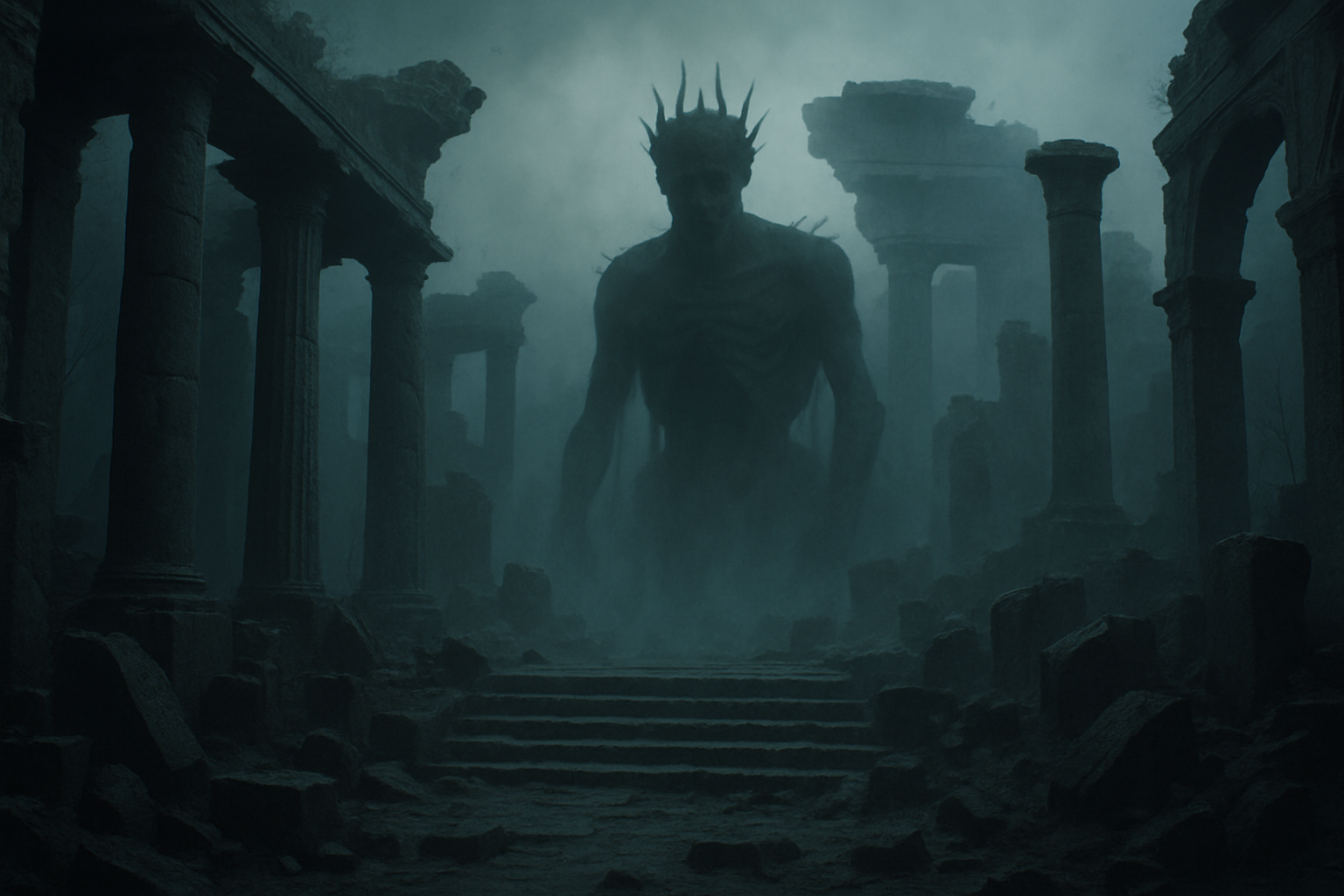
Artistic interpretation of Aoskar, the Dead God, sitting among ruins in a misty, shadow-filled temple
Aoskar's Story with a Clear Step-by-Step Guide You Can Follow
Aoskar was once a highly respected deity in his mythological world standing tall as a symbol of strength and authority that few dared challenge.
Through a tangled web of betrayal or brutal warfare or some cosmic twist of fate, Aoskar was ultimately overcome and stripped of his divine power, earning the grim title of the Dead God.
Legends paint Aoskar's death as a game-changer, a pivotal moment that shocked people across the world’s balance and shaped the destinies of mortals far and wide.
His fall didn’t just rattle the heavens but left his temples crumbling into ruin, making way for new rising forces eager to claim the spotlight.
Woven throughout countless tales, Aoskar’s lingering presence still shapes characters' destinies and throws a wrench into the world’s carefully laid plans.
Aoskar starts out as a mighty god whose death isn’t just some final curtain call but rather the spark that sets off a chain reaction of big changes. His fall shakes the world to its core, tossing new challenges and mysteries into the mix for the characters to wrestle with.
The Importance of Understanding Aoskar
Understanding Aoskar's role really helps deepen our appreciation of literary symbolism, especially by revealing how ancient gods often reflect our very human worries about death and the legacy we leave behind.
"Dead gods like Aoskar are little reminders that power and divinity don’t stick around forever. They stand as both cautionary tales and sparks of inspiration, quietly rising from the shadows of realms long forgotten—pretty much proof that nothing gold can stay."

